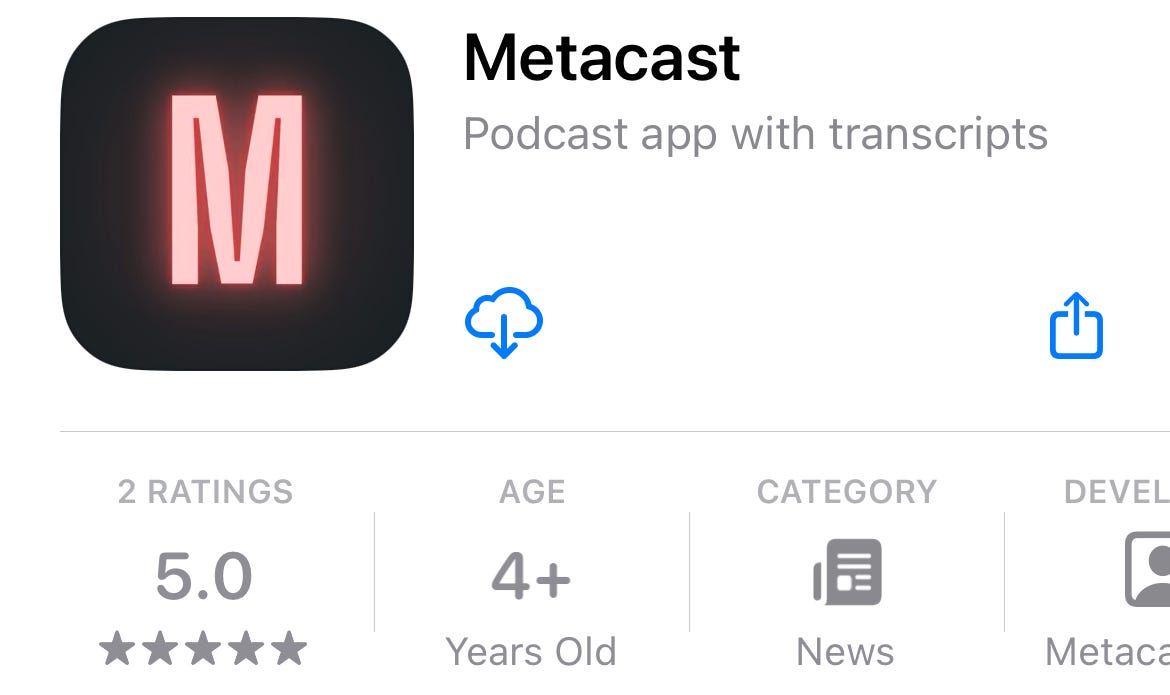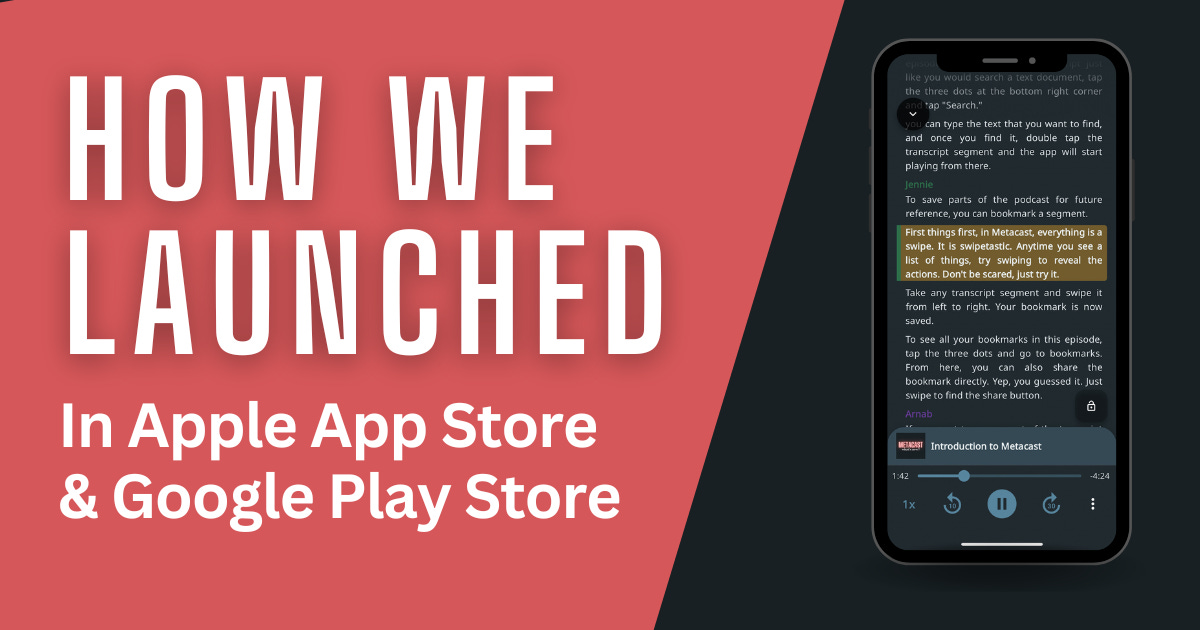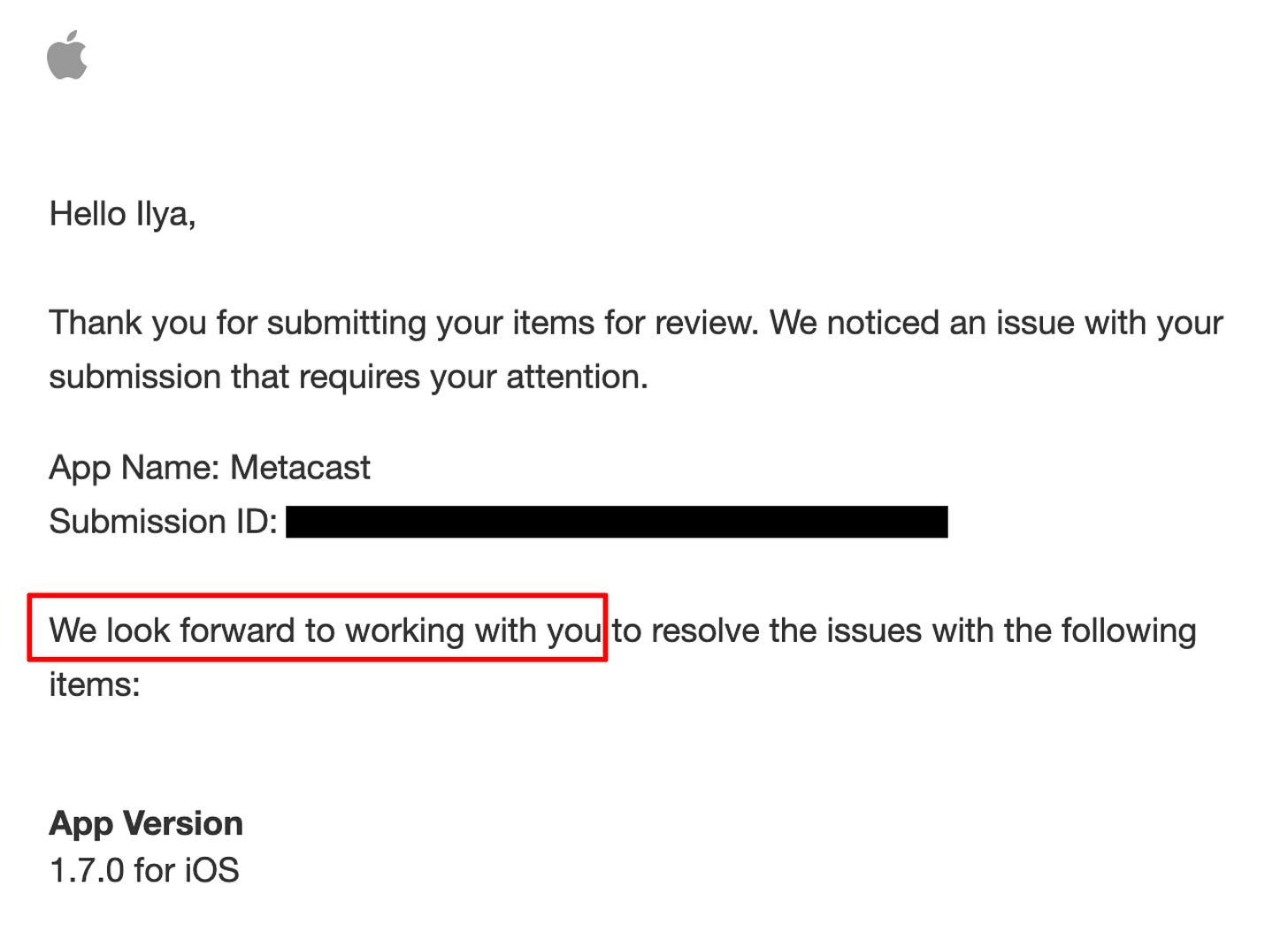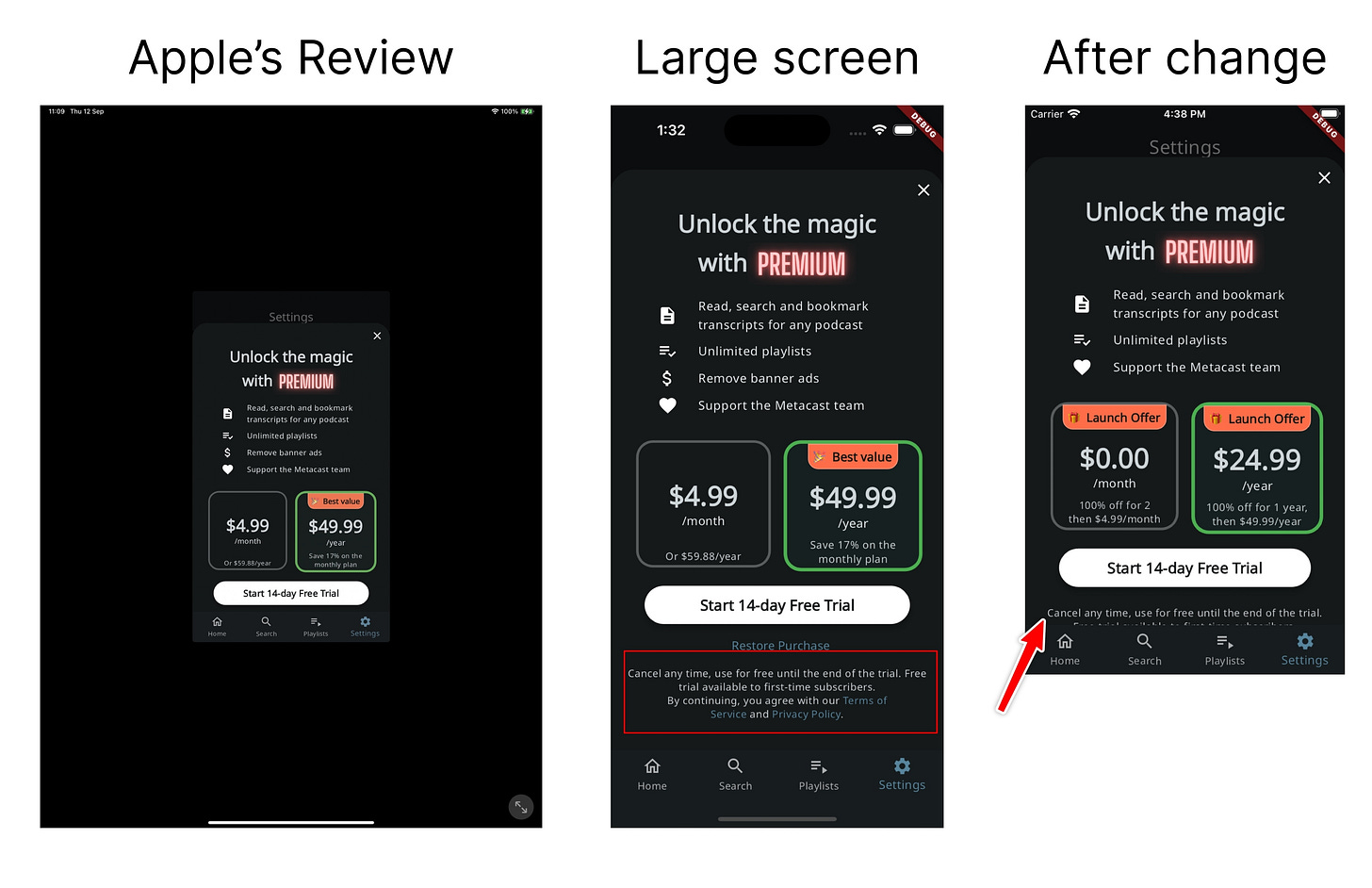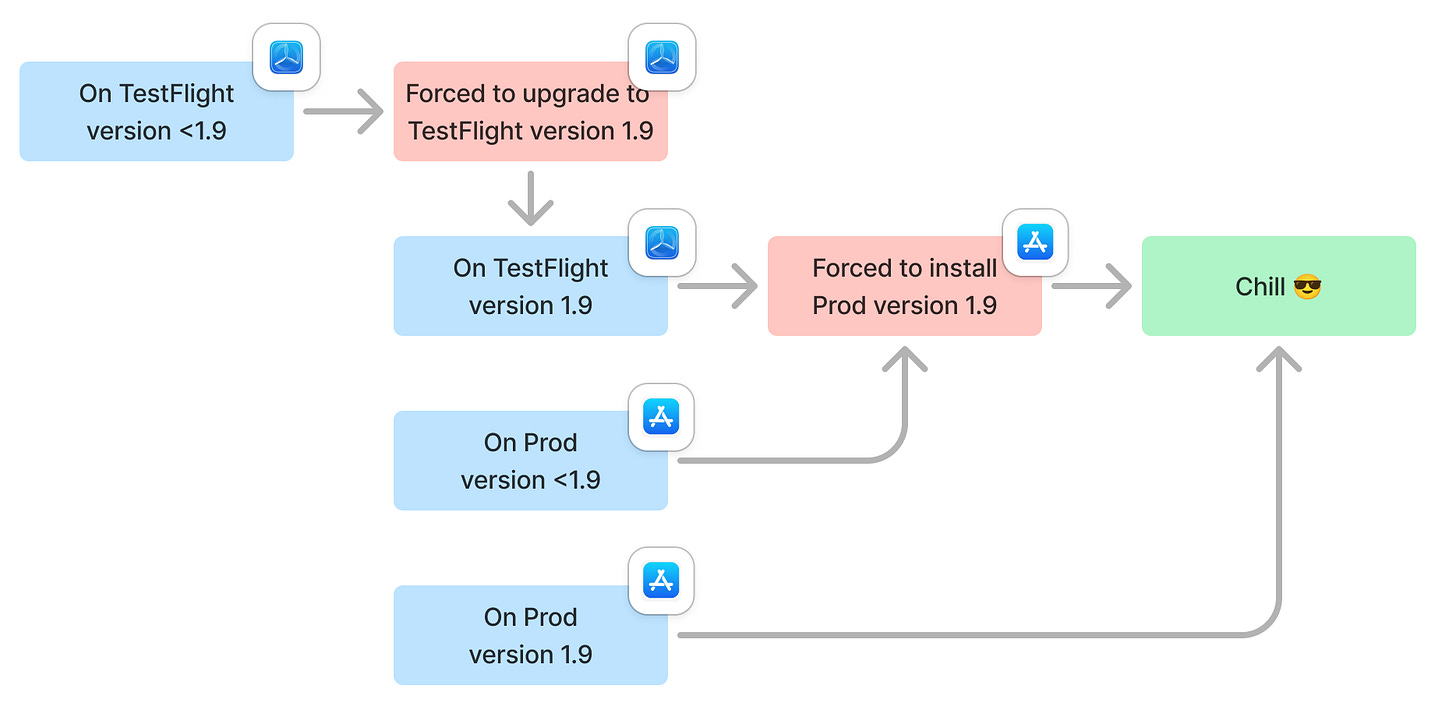Rejected by Apple and Google
How we launched Metacast on iOS and Android
It’s been a crazy couple of months and we’ve fallen behind on our newsletter.
Rest assured, we’re still committed to building in public. We have written a few blog posts and published our behind the scenes podcast on a regular schedule. The newsletter fell by the wayside, and we’re fixing that now!
In this newsletter issue, we’ll share our woes with being rejected by both Apple and Google (well, it’s less dramatic than I’m making it sound, but still…)
🚀 First things first — we’ve launched on iOS!
Now that we’re in production on both iOS and Android, we’d want to ask you for support.
Download Metacast from Apple App Store or Google Play Store.
Give us a ⭐️⭐️⭐️⭐️⭐️ review if you feel like we deserve it (if not, please write to us directly at feedback@metacast.app). Reviews are super important for apps to gain user trust in app stores.
Tell your friends about the app.
Alright, without further ado, here are a few noteworthy takeaways from our launch on iOS and Android.
You can also read our entire case study with screenshots in this very long post on our blog or listen to us ramble about it on the last 4 episodes of the Metacast: Behind the Scenes podcast.
Rejected by Google
We launched on Android in early August. What we didn’t know at the time is that we’d get three violation notices right after the launch.
Google approved the app, but a few days later, they sent us three rejection notices . At first, we had a “the sky is falling, we're going to be removed from the Play Store” reaction. We dropped everything we were doing and looked at it. For me personally, the state of mind was that of David threatened by Goliath.
The violations were for different reasons, but all were fairly easy to solve:
Undisclosed collection of Device IDs. We didn’t realize Firebase was collecting data that Google deems Device IDs. We updated the Data Safety questionnaire, which resolved the violation.
User testimonials. We’ve included a few user testimonials in the app’s description and screenshots. Google didn’t like it and we decided not to push it and removed them all.
Copy is not clear. The third violation was a mystery. It said that the copy on one of the app’s screens wasn’t clear. While we were considering ways to fix the issue, it got auto-resolved. Our hypothesis is that someone else at Google looked at our app and decided it was clear after all.
We’ve not had any more issues with Google Play afterwards.
Rejected by Apple
Apple takes a different approach to rejecting apps. It front-loads the rejection, so that you don’t get into the App Store until they’re satisfied. They’re also set up to respond to your messages when you have questions.
We got several rejections that were confusing, but overall easy to fix. It only took us a week, mostly because we couldn’t figure out the Apple App Store Connect UI.
In-app subscriptions not submitted. We were confused by Apple’s UI and didn’t click the right buttons on the right forms… That was easy to fix but took a few unsuccessful attempts to figure out.
Introductory offer missing. We’re offering 50% off Metacast Premium to all users until the end of October. The discount info was entered into Apple’s system correctly, but Apple’s reviewer didn’t see it. Once we pointed it out, the issue got resolved.
Missing Terms of Service and Privacy Policy links. Apple requires developers to make ToS and Privacy Policy links clearly visible in the app and also paste URLs into the app description text. We had the former, but the reviewer didn’t see it on a small device, so we updated the UI to make it clearer. We also pasted the links to the app’s description. That resolved the rejection.
After we addressed or clarified the issues with the Apple’s reviewer, the app was approved and we soft-launched it in the Apple App Store on September 20.
You get 50% off Metacast Premium if you subscribe through the end of October.
Ending the beta
We’ve ended both closed and open betas on iOS and Android. The process was clever but complicated and we would’ve done a couple of things differently if we were launching a mobile app again. Read about it on our blog.
Import your podcasts from other apps
If you’re a premium subscriber, we now offer an option to import your podcasts from apps that support OPML export.
Read more about the feature, the OPML standard and how we “built” it on our blog.
We’re so back!
We’re so happy to be back with the newsletter. Please send us a note if you have feedback or questions for the app, the newsletter, or the podcast. We’d love to hear from you!
More resources
Case study: How we launched Metacast mobile app on App Store and Play Store
New on Metacast blog: Podcast Import/Export via OPML
Latest podcast episodes:


